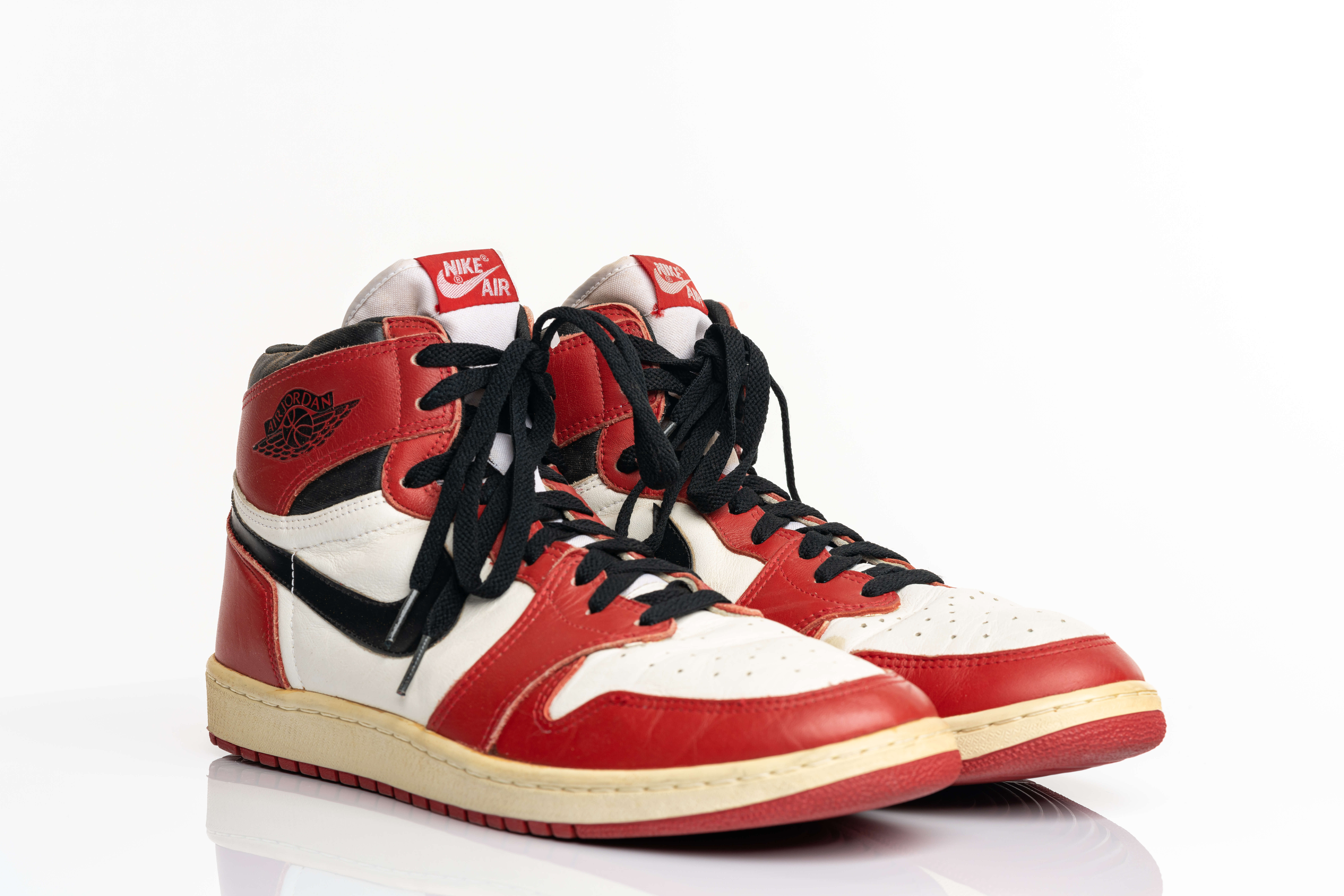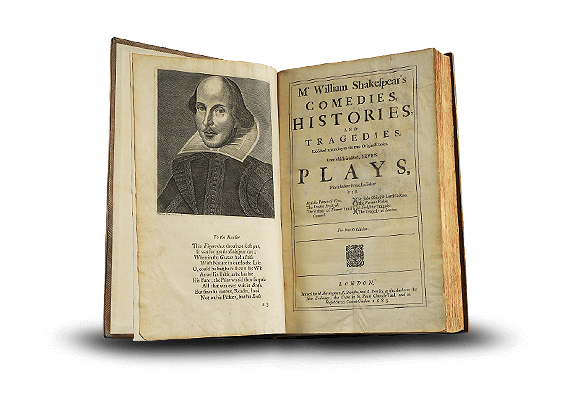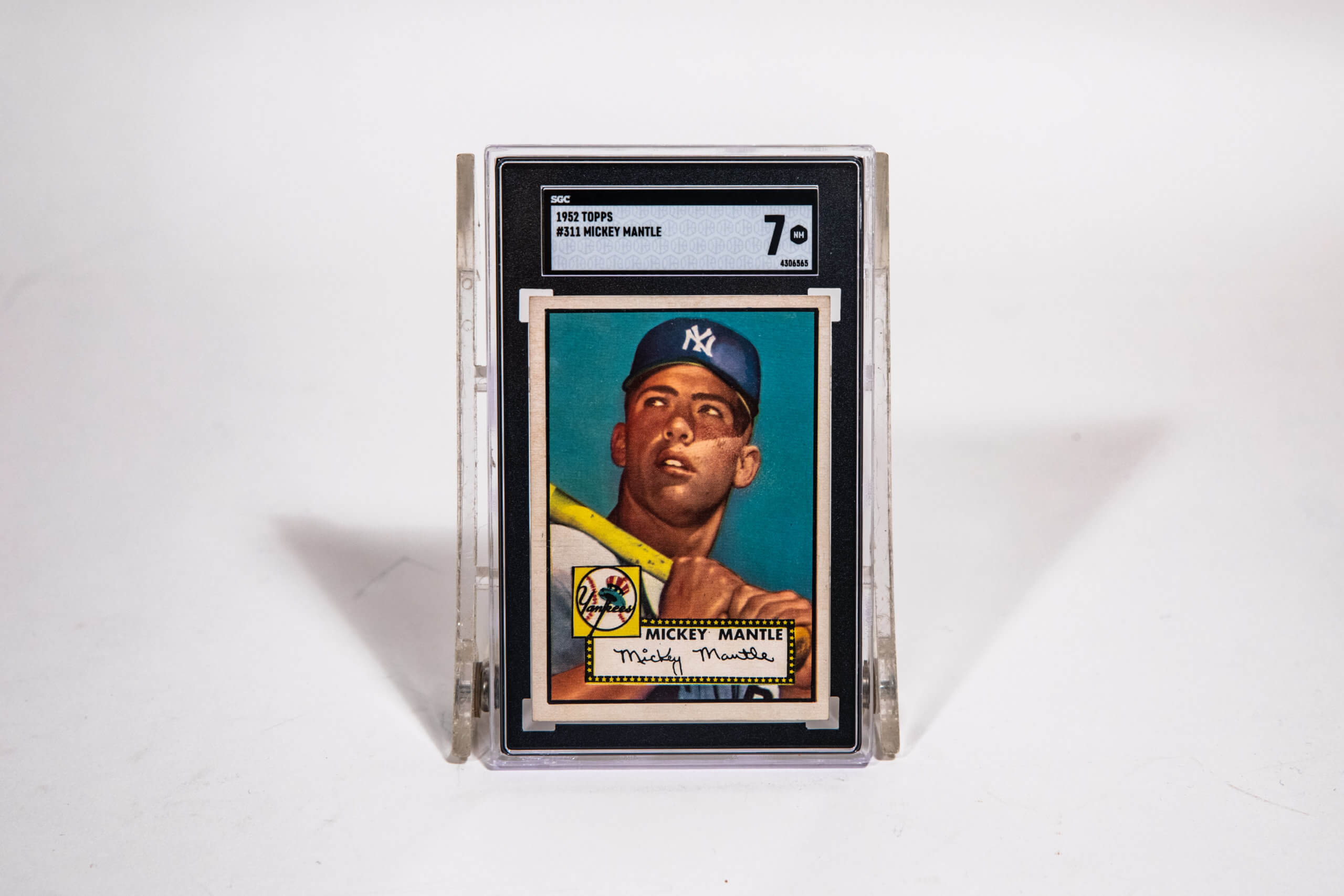Blog > Stories
Paths Collide: DiMaggio and Mantle
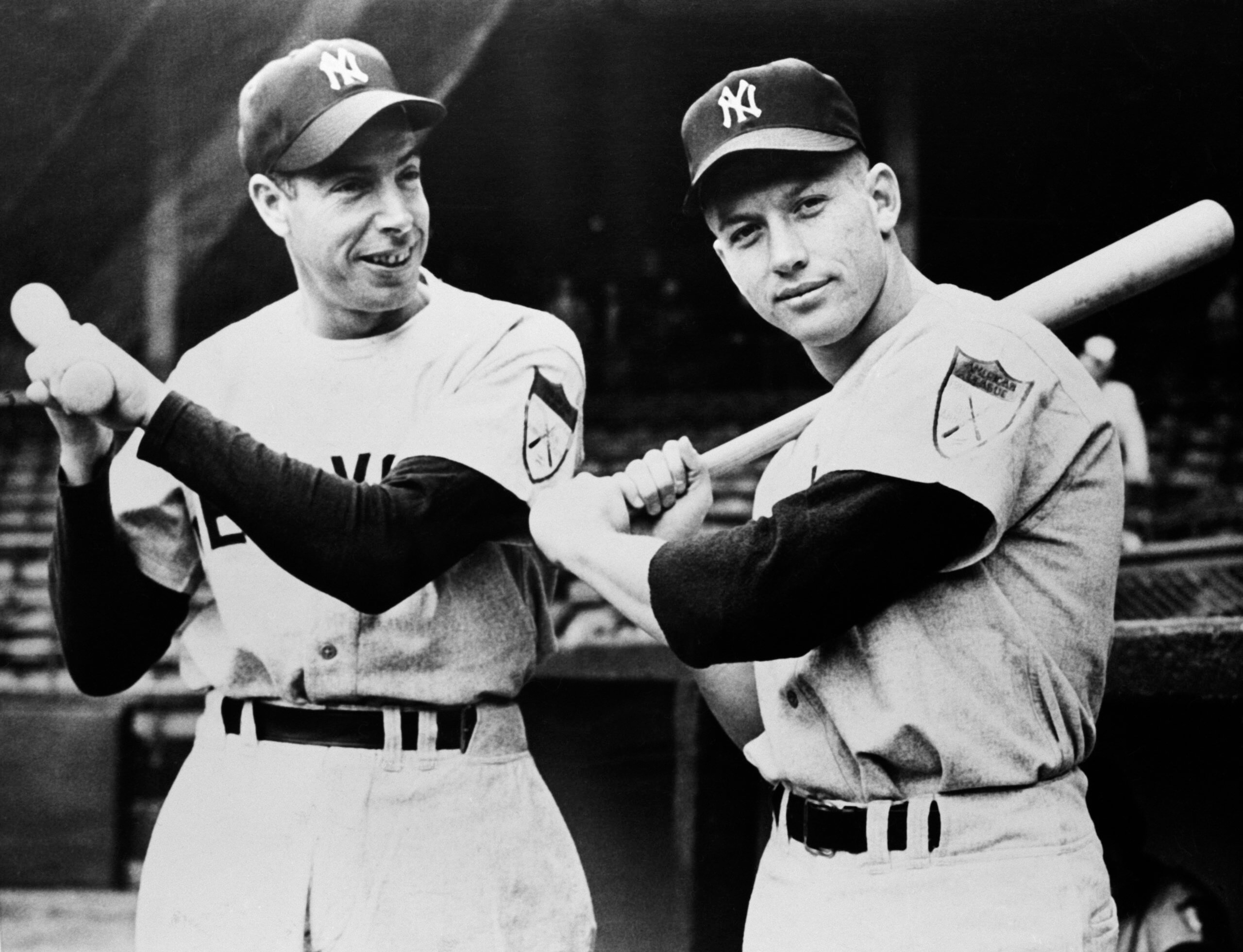
Blog > Stories
Paths Collide: DiMaggio and Mantle

Joe DiMaggio: Fame Never Lasts
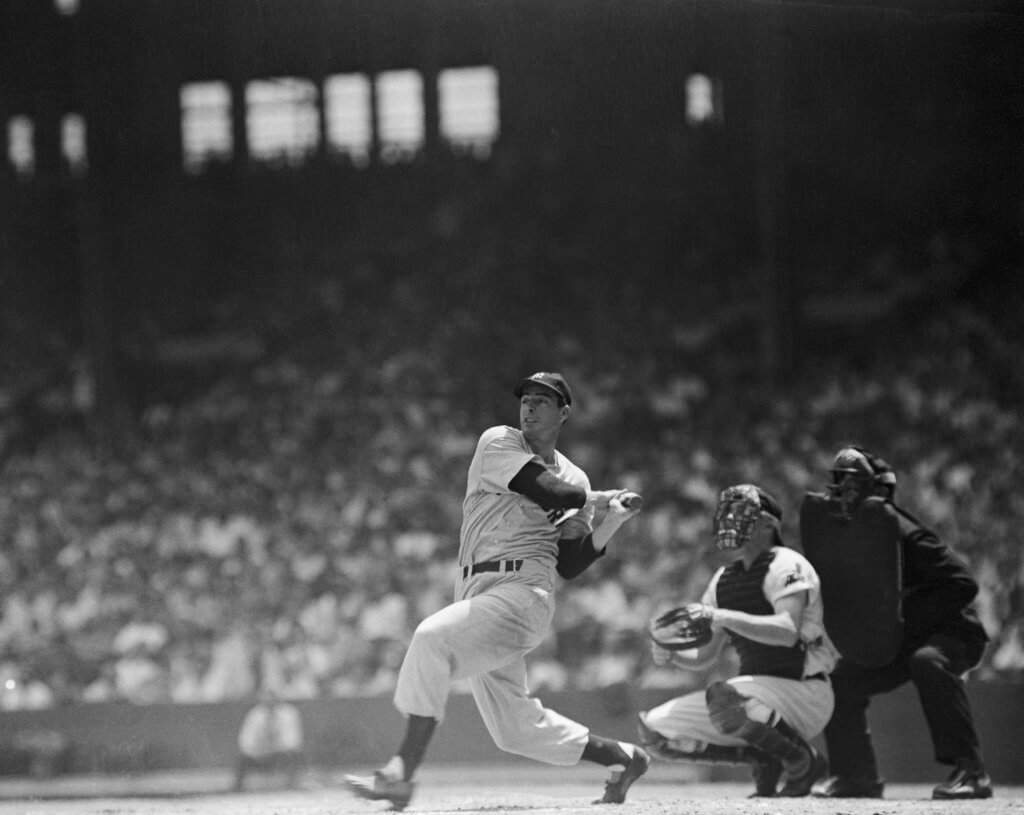
DiMaggio’s pride never wavered, believing the adoration he experienced as the star of the Yankees during his playing days would last forever. He did everything right, representing the team with honor and exemplary performance. Yet even the great DiMaggio couldn’t hold the public’s attention as he aged out of his youth.
After DiMaggio’s 1999 death, Paul Simon wrote an obituary for the fallen Yankee in the New York Times. The artist wouldn’t have been a natural choice to eulogize DiMaggio if it wasn’t for the lyrics he wrote in his song “Mrs. Robinson”:
”Where have you gone, Joe DiMaggio? A nation turns its lonely eyes to you”
According to Simon, DiMaggio was supposedly offended by the lyric, and had even considered a lawsuit. Simon describes a scene a few years after the song’s release in which he found himself eating in the same restaurant as DiMaggio and decided to approach his table. “‘What I don’t understand,’ he said, ’is why you ask where I’ve gone. I just did a Mr. Coffee commercial, I’m a spokesman for the Bowery Savings Bank and I haven’t gone anywhere.’”
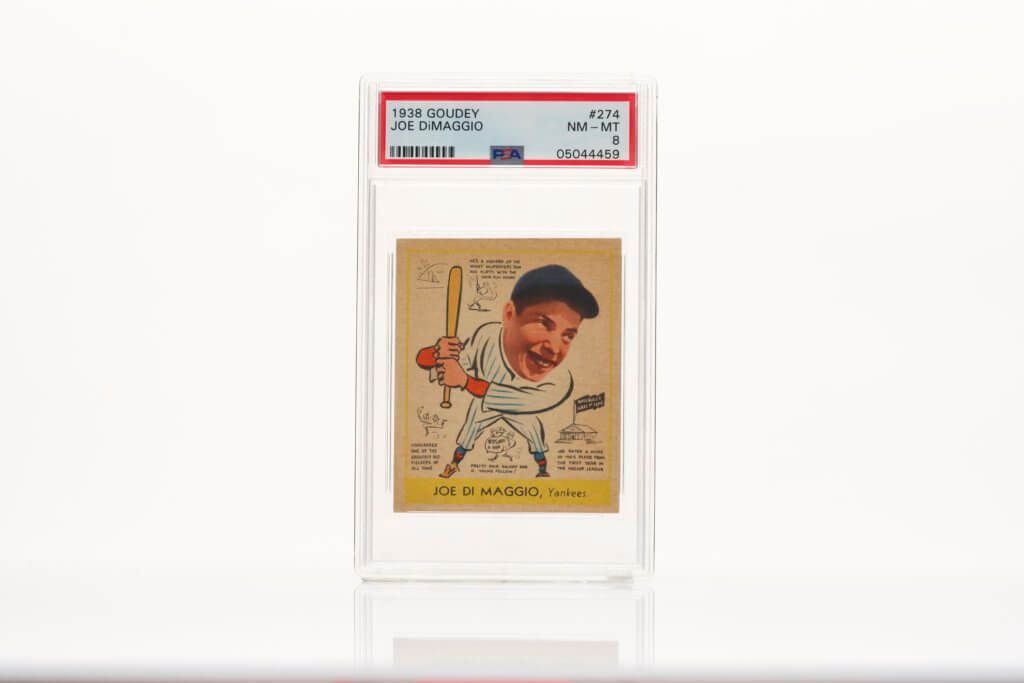
But it wasn’t in his DNA to accept, or even understand, the possibility that he could evolve into a Joe DiMaggio who was no longer at the center of culture. No wonder he interpreted Simon’s lyrics as a hostile attack on his reputation, which he was fundamentally unable to comprehend had entered a decline.
Simon explained that he didn’t mean the lyrics literally. He considered him an American hero and even a symbol of American ideals, for which the country was in short supply. “He accepted the explanation and thanked me. We shook hands and said good night.”
American Hero
Yet no homage to heroism could truly capture an accurate portrait of the man that grew to exemplify the definition of class and elegance, both on and off the field. His folk hero status was only bolstered by the three seasons DiMaggio missed from 1943-1945 as a sergeant in the air force.
In 1941, in the midst of DiMaggio’s record 56-game hitting streak, the Washington Post wrote “…there is something about it, at bat and in the field, that suggests some of the great sculptures of the Italian Renaissance: Donatello’s, for example.”
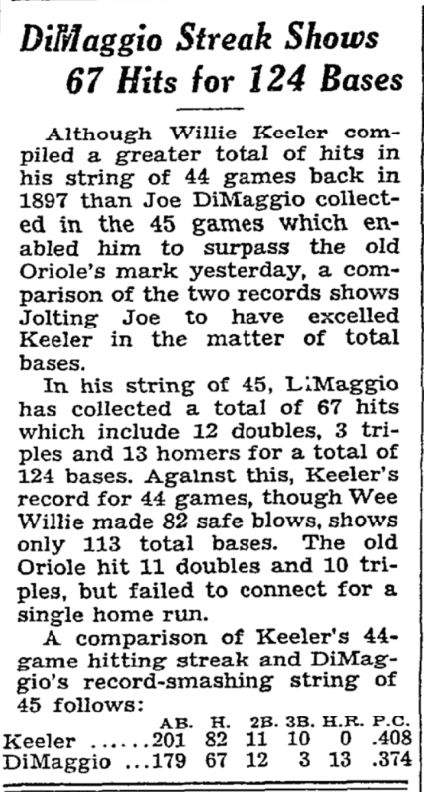
This dignity came to epitomize what it meant to wear the Yankees pinstripes. Building on the greatness of the Yankees of the past like Ruth and Gehrig, those lucky enough to put on the uniform were obligated to do their best DiMaggio impression.
That 56-game hitting streak is considered one of the most unbreakable records in sports. A mark of consistency, focus, and commitment that would define his career and color his disdain for the comparably low level of seriousness with which Mantle played the game.
Quasi-God-Like Status
Even among the most glorified stars in history, DiMaggio was able to relate to the unrelenting spotlight in a way unlike any of his predecessors. Because he was more than a baseball player or a cultural icon, he had been elevated to some kind of quasi-god-like status, the likes of which only becomes possible when the general public unanimously decides that they’ve never seen anyone like this before.
Unlike many of history’s most esteemed athletes, who only had their heroics recognized after the prime of their careers, DiMaggio’s aura was always apparent to his peers, fans, and to the media.
His marriage to Marilyn Monroe provided an insight into just how intense his celebrity had become. One particularly poignant anecdote recalls Monroe returning from a trip to Korea after entertaining over 100K soldiers:
“It was so wonderful, Joe,” she said. “You never heard such cheering.”
“Yes I have,” he answered.
ESPN
DiMaggio’s tumultuous marriage to Marilyn Monroe ended in divorce after less than a year, and while his regular TV appearances and sponsorship deals kept him in the public eye, there was no longer the same luster and mystique he enjoyed during his playing days.


To Simon, DiMaggio represented the values of the America of the ‘50s and ‘60s, a time when “it was fashionable to refer to baseball as a metaphor for America.”
“He was the antithesis of the iconoclastic, mind-expanding, authority-defying 60’s, which is why I think he suspected a hidden meaning in my lyrics. The fact that the lines were sincere and that they’ve been embraced over the years as a yearning for heroes and heroism speaks to the subconscious desires of the culture. We need heroes, and we search for candidates to be anointed.
Paul Simon
But Simon reconsidered this as he mulled over DiMaggio’s place in culture after his death, coming up with a more nuanced explanation for his inclusion in the song.
“He belonged to my father’s youth: he was a World War II guy whose career began in the days of Babe Ruth and Lou Gehrig and ended with the arrival of the youthful Mickey Mantle (who was, in truth, my favorite ballplayer).”
Paul Simon
After Mantle arrived in 1951, DiMaggio would decide to retire — relinquishing his center field role to the young up-and-comer, despite his disapproval. The days of the clean and untarnished image of the leading Yankees star would come to a sudden and jarring end, jolting to a new era that would match the shifting ideals of the new generation. The clean cut and soft-spoken hero of the post-war era would make way for a brash, hard-partying and big-swinging character of less certain moral clarity.
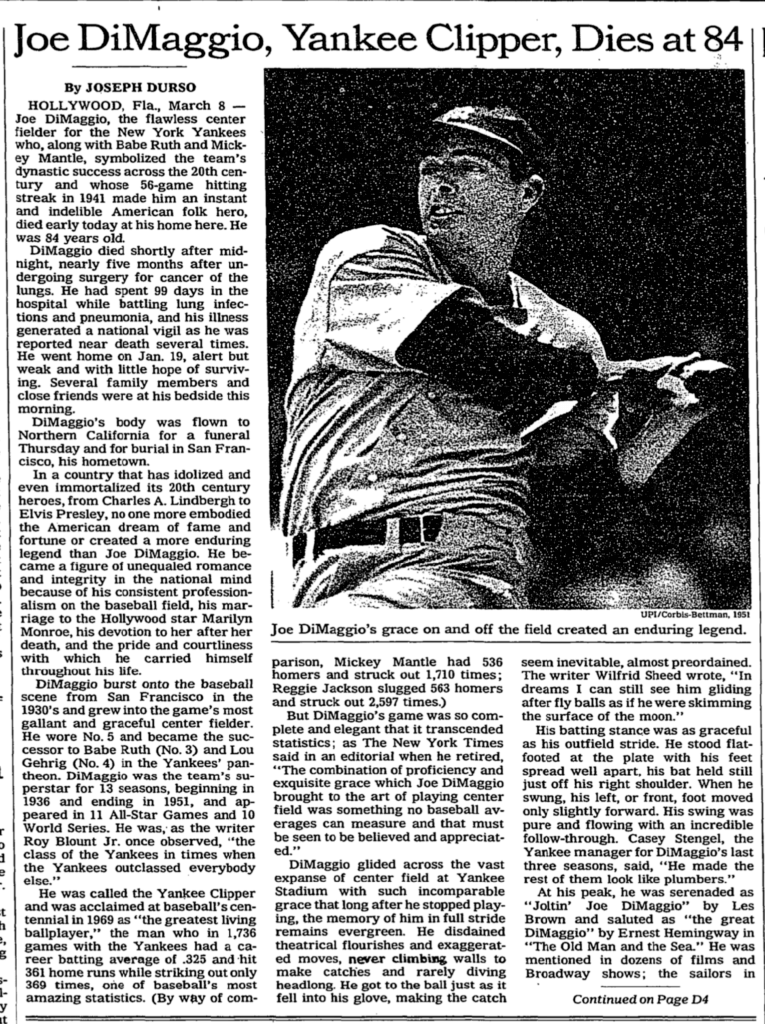
The melancholy of his post-baseball years was most famously captured by Gay Talese in his 1966 Esquire profile titled “The Silent Season of a Hero.” Published months after Talese’s legendary Frank Sinatra profile, the two articles share similarly somber tones — detailing the day-to-day lives of the two ‘over-the-hill’ icons.
“There was a majesty in his swing, and a self-assured confidence in style and conduct that was uniquely Joe DiMaggio’s. In the eye of his public, he was more than a sports hero. He was among the most cherished icons of popular culture.”
Ernest Hemingway




